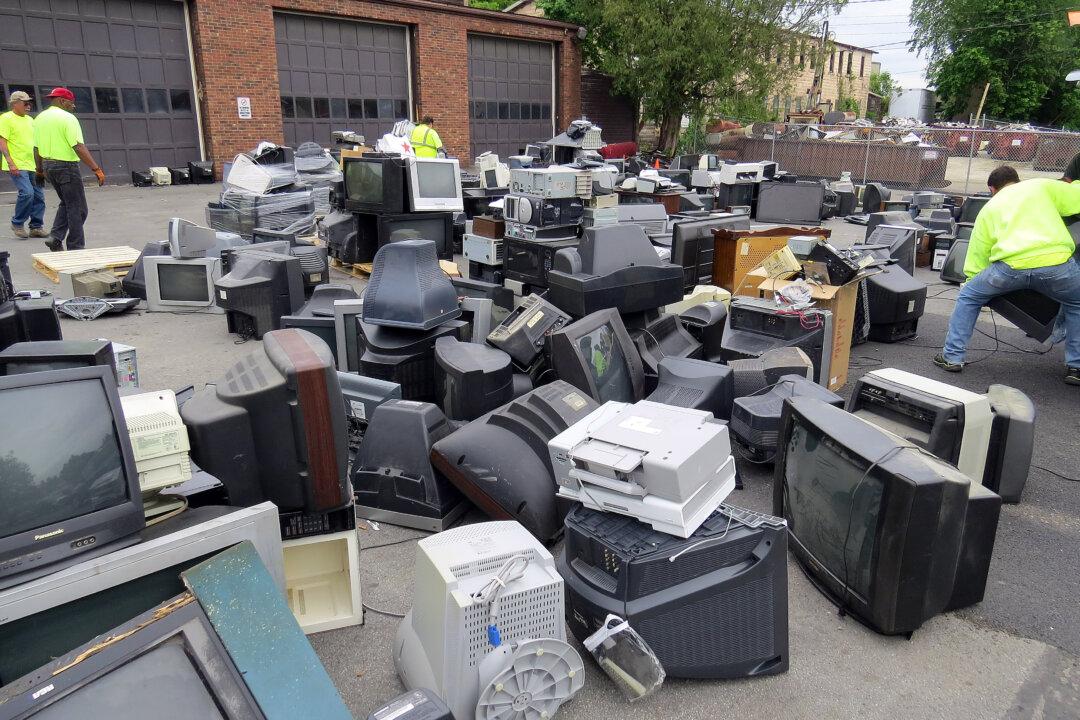The line of cars going down the street during Middletown’s May 21 electronics drop-off day was “overwhelming,” said Middletown Commissioner of Public Works, Jacob Tawil, and they were completely unprepared for it.
“When we started at 9:00 in the morning, we only had two guys in here—we didn’t expect much,” he said.
Middletown, like other municipalities in the state and the county, has seen a dramatic increase in trashed electronics this year, and like other municipalities, it is taking a toll on the budget.
For that one drop-off day, the city paid $8,927 to SAMR Inc., $5,192 more than it paid in 2014.
Just 7 miles away, Mount Hope has stopped accepting TVs and computer monitors because the ones from its spring cleanup put the town over its spring cleanup budget of roughly $10,000.
Last year the town paid $1,593 to Regional Computer Recycling to recycle all its electronics. This year the town paid $3,241 to the same company.
“We got an enormous amount this springtime, more than we’ve gotten ever in a whole year,” said Mount Hope Highway Supervisor Dean Hassenmayer.
He suspects it has something to do with the Village of Otisville terminating their electronics drop-off, and holding cleanup week at the same time as Mount Hope.





